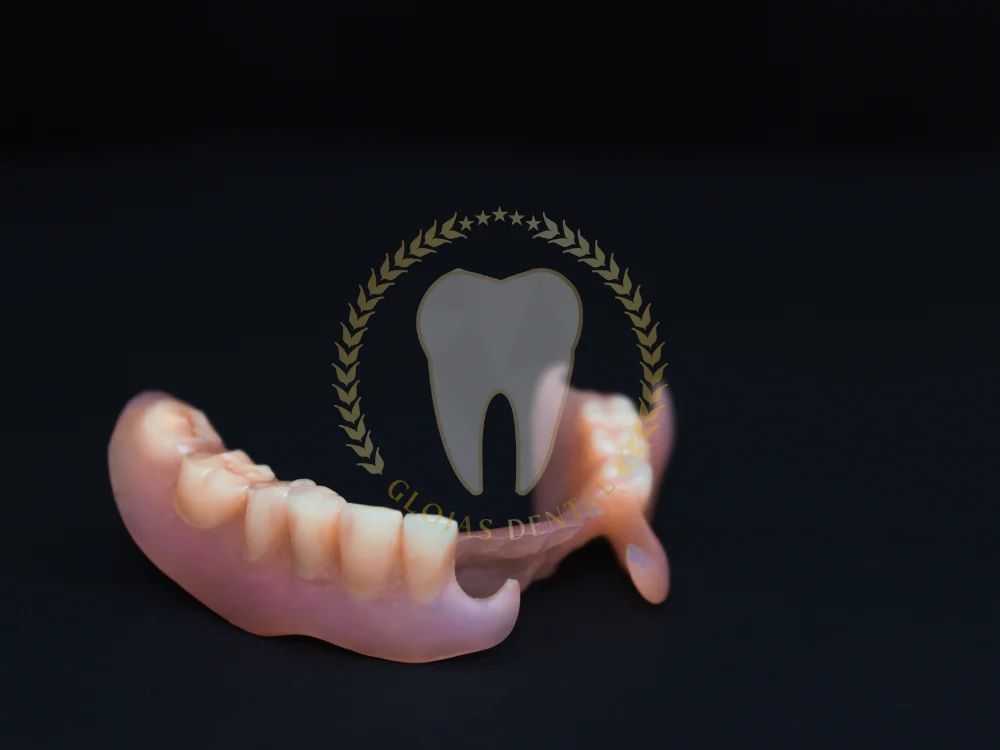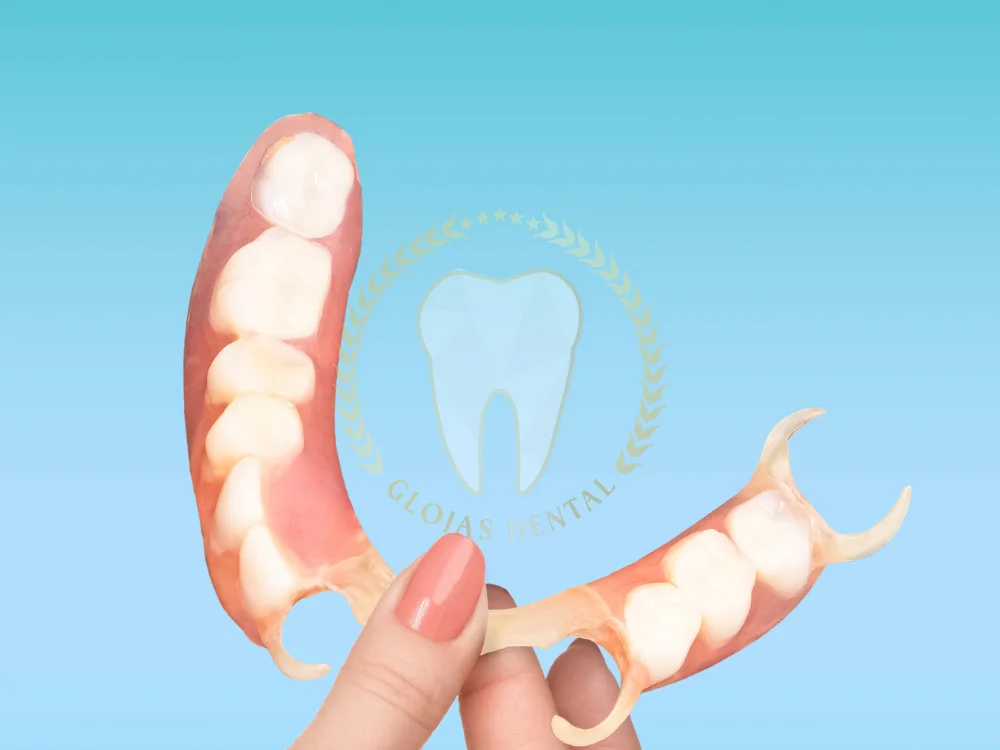Tooth loss can significantly impact a person’s quality of life, affecting both physical and emotional well-being. Traditional dentures, while effective, can often be uncomfortable, ill-fitting, and aesthetically unappealing. However, modern dentistry has introduced a revolutionary solution: flexible dentures.
Flexible dentures, also known as Valplast dentures, offer a comfortable, discreet, and affordable alternative to traditional dentures. These innovative dentures are made from a thin, flexible plastic material that is custom-fitted to the patient’s mouth. Their unique design and material properties make them a popular choice for individuals seeking a comfortable and natural-looking solution for tooth replacement.
In this article, we will delve into the world of flexible dentures, exploring their advantages, materials, and maintenance tips. We will also discuss the factors to consider when choosing a flexible denture and how to ensure optimal oral health and well-being.
What Is a Flexible Denture?
A flexible denture is a partial denture made from softer, pliable materials like nylon or thermoplastics, unlike traditional acrylic dentures. This flexibility allows the denture to adapt seamlessly to the contours of your mouth, offering superior comfort and a natural look.
Why Choose a Flexible Denture Over Traditional Options?
Comfort and Adaptability
One of the most compelling reasons to opt for a flexible denture is its exceptional comfort. Unlike rigid acrylic dentures, the flexible base eliminates pressure points and adjusts snugly to gum tissue, reducing irritation.
Enhanced Aesthetics
These dentures often come with gum-colored bases and realistic-looking teeth, providing a discreet option for replacing missing teeth. The material blends beautifully with your gums, ensuring a more natural smile.
Durability and Resilience
While they are soft to wear, flexible dentures are incredibly tough and less prone to breaking compared to traditional ones. Their flexibility absorbs shocks, making them more resistant to cracks.
How Is a Flexible Denture Made?
Creating a flexible denture involves advanced technology. Dental technicians use lightweight, flexible materials to create custom-fit dentures tailored to your mouth. Here’s a quick rundown of the procedure:
- Impressions – Your dentist takes an accurate impression of your gums and teeth.
- Designing – The denture base is shaped using specialized software and molds.
- Customization – Teeth are added to match the color and size of your existing teeth.
- Fitting – The final product is adjusted for the perfect fit.
Who Should Consider a Flexible Denture?
These dentures are ideal for:
- Individuals with sensitive gums or allergies to traditional denture materials.
- Patients looking for lightweight, comfortable alternatives.
- Those who prioritize aesthetics and wish for a discreet option.
However, it’s essential to consult your dentist to determine if a flexible denture suits your dental needs.
Advantages of Flexible Dentures
Hypoallergenic Material
Made from biocompatible materials, flexible dentures are less likely to cause allergic reactions compared to acrylic alternatives.
No Need for Metal Clasps
Unlike traditional partial dentures, these rely on flexible gum-colored bases instead of metal clasps, which enhances their appearance.
Improved Fit
Thanks to their pliability, flexible dentures adjust better to the unique contours of your gums, reducing the likelihood of slipping or discomfort.
Disadvantages to Keep in Mind
Despite their numerous advantages, flexible dentures do have some limitations:
- Cost – They are generally more expensive than traditional dentures.
- Staining – The softer material can stain over time if not cleaned properly.
- Repairs – Fixing a damaged flexible denture is more challenging than repairing a rigid one.
Caring for Your Flexible Denture
Proper care can extend the life of your flexible denture. Here’s how:
- Daily Cleaning – Use a soft-bristle brush and non-abrasive denture cleaner. Avoid hot water to prevent warping.
- Soaking Overnight – Keep the denture in a soaking solution to maintain its flexibility.
- Avoid Harsh Chemicals – Steer clear of bleach-based cleaners that can damage the material.
- Regular Dental Checkups – Ensure your denture remains in good condition and fits properly.
Flexible Denture Maintenance Tips
- Always rinse your dentures after eating to remove food particles.
- Handle with care to avoid accidental bending or cracking.
- Store them in a moist environment to retain their pliability.
How Does a Flexible Denture Compare to Other Options?
Flexible Denture vs. Acrylic Denture
- Comfort: Flexible dentures are softer and less likely to irritate gums.
- Durability: Acrylic dentures are more brittle, making them prone to breakage.
Flexible Denture vs. Fixed Bridge
- Cost: Flexible dentures are more affordable than dental bridges.
- Invasiveness: Bridges require altering adjacent teeth, while flexible dentures do not.
Flexible Denture vs. Implant
- Time: Dentures are quicker to manufacture and fit.
- Longevity: Implants may last longer but come with a higher price tag and require surgery.
How Much Does a Flexible Denture Cost?
The price of a flexible denture varies based on factors like material, design, and dentist fees. On average, you can expect to pay between $700 to $3,000 per denture. While this may seem steep, the long-term benefits often outweigh the initial cost.
Frequently Asked Questions FAQs
1. What makes a flexible denture different from a traditional one?
A flexible denture uses soft, pliable materials for enhanced comfort and aesthetic appeal, unlike traditional acrylic dentures that are rigid.
2. Are flexible dentures suitable for everyone?
While ideal for most people, they may not be recommended for those requiring full dentures or those with severe bone loss.
3. How long does a flexible denture last?
With proper care, a flexible denture can last 5–8 years, though this depends on usage and maintenance.
4. Can I eat normally with a flexible denture?
Yes, though you should avoid excessively hard or sticky foods to prevent wear and tear.
5. Is a flexible denture covered by insurance?
Some dental insurance plans may cover part of the cost. It’s best to check with your provider for specifics.
6. Can flexible dentures be repaired if damaged?
Repairs are possible but can be more challenging compared to traditional dentures. In severe cases, replacement may be necessary.
Conclusion
Flexible dentures offer a comfortable and convenient solution for individuals with missing teeth. Their lightweight, flexible material and custom fit make them a popular choice for many. However, it’s important to remember that while flexible dentures are durable, they still require proper care and maintenance to ensure their longevity.
By following these guidelines and consulting with your dentist, you can enjoy the benefits of flexible dentures and maintain a healthy, confident smile.



